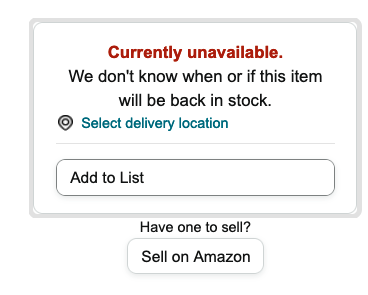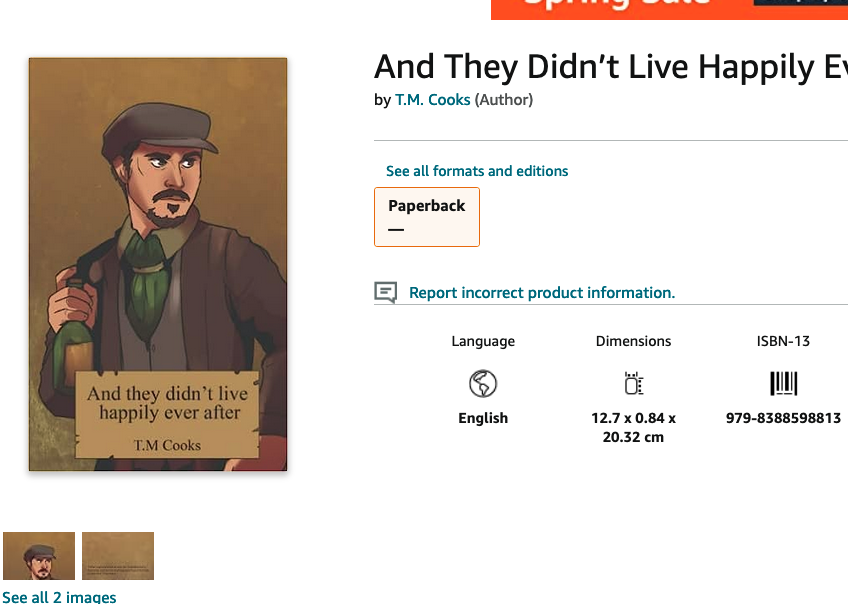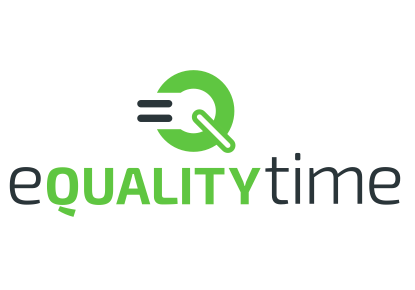Today, we are thrilled to announce the launch of our the “Security for Changemakers” course!
Our six-session course is designed to equip students aged 16-18 with the skills they need to stay safe while advocating for change in their communities. We recognize that many of the young people we work with are passionate about creating positive change, whether it’s pushing for a new local climbing wall, fighting for animal rights, or campaigning for safer cycling lanes. With the support of our funders, we’ve been able to create a course that addresses the unique challenges faced by young people who are trying to create change.
The “Security for Changemakers” course covers essential topics such as digital security, physical safety, and legal considerations. We’ve developed engaging lesson plans, handouts, and interactive activities that can be tailored to the specific needs of different classrooms. One 6th Form Teacher shared their experience with our course, saying, “You have made a potentially intimidating topic area very easy to teach.”
The course materials are all free to download (and change!) at www.tightrope.co.uk and we’re excited to hear from teachers using the materials with their students!
News
Why are kdp books ‘currently unavailable’
We’ve published almost 300 books on Amazon’s kdp platform, and more and more regularly we see this on books we’ve just published:

“Currently unavailable”
This is really strange: Amazon uses a print-on-demand (POD) system, which means that when a book is ordered, it is printed and shipped directly from the printing facility. This is a very efficient system, as it allows for books to be printed and shipped quickly and without the need for large print runs.
We think that this is because there are times when the printing facility may experience a backlog or delay in production, (big rushes around Christmas for example) so to prevent this backlog from growing even larger, we think Amazon may temporarily reduce the number of orders for POD books so they can meet
their ‘Prime’ delivery deadlines and avoid disappointing customers.
The issue of books being listed as “currently unavailable” on Amazon is usually a temporary one. Typically, the issue will resolve itself within a day or so as the backlog is cleared and production returns to normal levels. That’s our experience in the UK – the picture is a bit different internationally, with at least one client in Brazil having a delay of weeks on a kdp release.
March 2023 edit:
We continued collecting data after writing the above post, and there are gliches that are not fully explained. For example, the following two books were published within minutes of each other yesterday:


They are identicial sizes and almost identical number of pages. They use the same color of paper. But one is availible to buy and the other isn’t. This suggests that the issue isn’t as simple as “the print on demand machines are full”.
Databases
White Water Writers effectively runs as a publishing company, so one of the most important tools we use is our database of books. It may not be the most exciting part of our work, but it plays a vital role in making sure that our project runs smoothly and efficiently.
Over the past couple of days, we’ve spent a lot of time updating our book database. This might sound like a tedious task (and it is!), but it’s actually incredibly important. Our database is responsible for generating all of the novel pages on our website, making sure that we’ve correctly invoiced customers for their purchases, and ensuring that our records are in sync with Amazon and IMPS3.
Without a reliable and up-to-date database, our business would struggle to function. Schools might receive the wrong books or be charged the wrong amount, leading to frustration and dissatisfaction. It’s essential that we keep our records accurate and consistent, so that we can provide the best possible service to our customers.
We are a tech charity tho – so updating the database isn’t just a matter of typing in information and hitting “save.” export scripts have been written from both Amazon and IMPS3 so that we avoid typos and see immediately if something strange is happening.
While it may not be the most glamorous part of our work, we know that our database is a key part of our success. By taking the time to keep it updated and accurate, we’re able to provide our customers with the best possible experience. So the next time you visit our website and browse through our collection of novels, remember that behind the scenes, our trusty database is working hard to make it all possible.
Update to the Open Voice Factory
The Open Voice Factory has had an update, the start of a few we have planned over the next few months. It should be invisible to users – it’s mostly been changes to the internals so that things work more efficiently.
Mildly worryingly the above paragraph is directly copy-pasted from our last blog post about an update. We promise we quite like the idea of new features, but it’s also important to make sure the underlying software is as solid as possible.
The actual update is from this commit, to this commit. It includes:
- The introduction of test cases for php
- The improvement of the python regression test reporting – the code now tells you all the files that failed comparission (rather than the just the first) and prints out the commands to compare them with diff tools.
- Refactoring out a persistent but untimately unecessary dependency that was wrapped right around the main code.
- As a result, the uncovering of a minor bug that affected our Arabic pageset.
- Begining to improve the ‘success’ page that you see when you create an aid. Much more to do there.
The next major things on our roadmap are to completely revamp the ‘success’ (and indeed ‘failure’) pages that you see after a pageset has been uploaded. Then, it’s working on Google Ads to drive a little more traffic our way.
Tightrope
We are working on a new project called Tightrope. It’s goal is to get more young people interested in Cyber Security by talking about what Cyber Security really is, and showing people how little of it needs a keyboard and how much of it needs empathy, understanding, and imagination.
We wrote six lessons with A-level students and we ran the last session with first our first college group yesterday. We worked hard on the lesssons and they were fun to deliver, but as with anything worth doing – we now need to rewrite the them completely before we start with the second group next week. After the second group, we get the real test – the third group will have someone else run our lessons for us.
We’re looking forward to putting all of this online.
Price Calculator for White Water Writers Groups
There’s now a price calculator at https://whitewaterwriters.com/prices.html. School budgets are tight and we think that being upfront about cost will save everybody some time. We’ve been using the cost here , but inflation is starting to make them less accurate.
Google Ads
Our use of Google Ads has been extremely uneven: one project does astonished well, another does very badly. We’re starting to wonder if it’s a great idea.
We received a Google Ads grant about two years ago; it gave us up to $10,000 worth of ad credit a month. Since then we’ve spent over $1,000 of credit on White Water Writers without a single booking coming from it. At the same time, promoting Project Real, has produced 1,000s of downloads and lots and lots of visitors. Our ads for the Open Voice Factory can’t even get shown.
This massive disparity is confusing. On the one hand, it’s evidence that the ads that have been put up aren’t entirely bad. On the other, it’s clear that we are failing to crack some significant issue.
It’s worth knowing that it’s surprisingly hard to spend money with Google Ads. You don’t pay for the ad unless it’s seen, and Google only shows the ad to a user if it’s one of the, say, most relevant three ads that are competing for the slot. So until you can write ads that are seen by people, you don’t spend any money at all. That’s the situation that the Open Voice Factory ads are in, which is particularly frustrating given the nature of the project.
White Water Writer ads *are* seen. A bit. Enough to use up a $1,000 of credit. A few hundred people click have clicked on the ads, but those people don’t make the step from visiting the website to booking. It might be worth improving that end of the scale but I feel like there is definitely something not quite right about the ads.
The runaway success has been Project Real. It’s ads are seen frequently and in a year they have burned through about $50,000 of credit. Lots of people have gone to the website. Lots of people have then downloaded the resources and periodically email or message for advice. We are completely confused about why that one works.
Overall I am looking at the Ads system with a mixture of confusion and frustration. There is clearly something useful here. But on the other hand, a decade of experience with White Water Writers has shown that people rarely believe in it before they see it. It’s possible that the hyper-exaggerated world of internet advertising isn’t the right place to try and promote it.
Open Voice Factory Update
The Open Voice Factory has had an update, the start of a few we have planned over the next few months. It should be invisible to users – it’s mostly been changes to the internals so that things work more efficiently.
In detail – some time ago we added some code that allowed OVF to export pagesets in the Open Board Format, a little while later we revamped our user client also use the Open Board Format. However, the internals of the code stuck to the old format and had to do a lot of extra work. The update we released recently has abandoned the old approach in favour of fully committing to the Open Board Format. In the long run this will make it easier to add new features while keeping reliability, but we appreciate it’s a pretty boring update right now.
“Currently unavailable” on Amazon KDP
We had an interesting bug recently. One of our books was published by Amazon KDP, but it appeared as ‘unavailable’ immediately after publishing.
This is very strange. Amazon prints books like ours on demand when they are ordered: they can never be out of stock (or even ‘in stock’ for that matter: stock is meaningless).
Another factor was that we could order the book in any other country – it was available from the US version of Amazon, the French version, and the Brazilian version.
After a week (which felt like a very long time) the book became available again and was ordered as normal.
Our working hypothesis is this: Amazon has a limited number of print-on-demand machines in the UK. We know some of them are in Luton (they give the test copies to a local infants school here). For some reason a proportion of the machines stopped working for a week and Amazon stopped offering some of their print-on-demand catalogue while the machines caught up.
Interestingly – We suspect part of the problem was Amazon’s Prime system – because they guarantee delivery within a short timeframe, they weren’t able to offer the books at all.
This is all guesswork of course, and we post it only because it’s relatively informed guesswork. We’ve published over 250 books on the platform and ordered over 10,000 copies, so we have some experience of the system.
Infrastructure
Over the last few months we’ve moved all our online projects away from Dreamhost and over to Amazon Web Services. It was a steep learning curve of various sysadmin tasks but we had outgrown Dreamhost by some margin and had dealt with enough poor customer service to make it satisfying to leave.
There have been some immediate and obvious benefits. It would have been extremely difficult to build IMPS3 on Dreamhost for a start. The Open Voice Factory hasn’t had as obvious a change, but it now runs faster and I’ve got much better access to build it up.
We’ve been migrating other projects away from Dreamhost for some time. Static sites like Flowers For Turing and Project Real have been hosted on Github Pages for a while. That has the advantage of being free, and letting any passing nerd pop by and create a pull request to fix any typos or errors.
The migration isn’t yet complete – equalitytime.co.uk itself remains on Dreamhost – there will be a final tidy up in the future.
